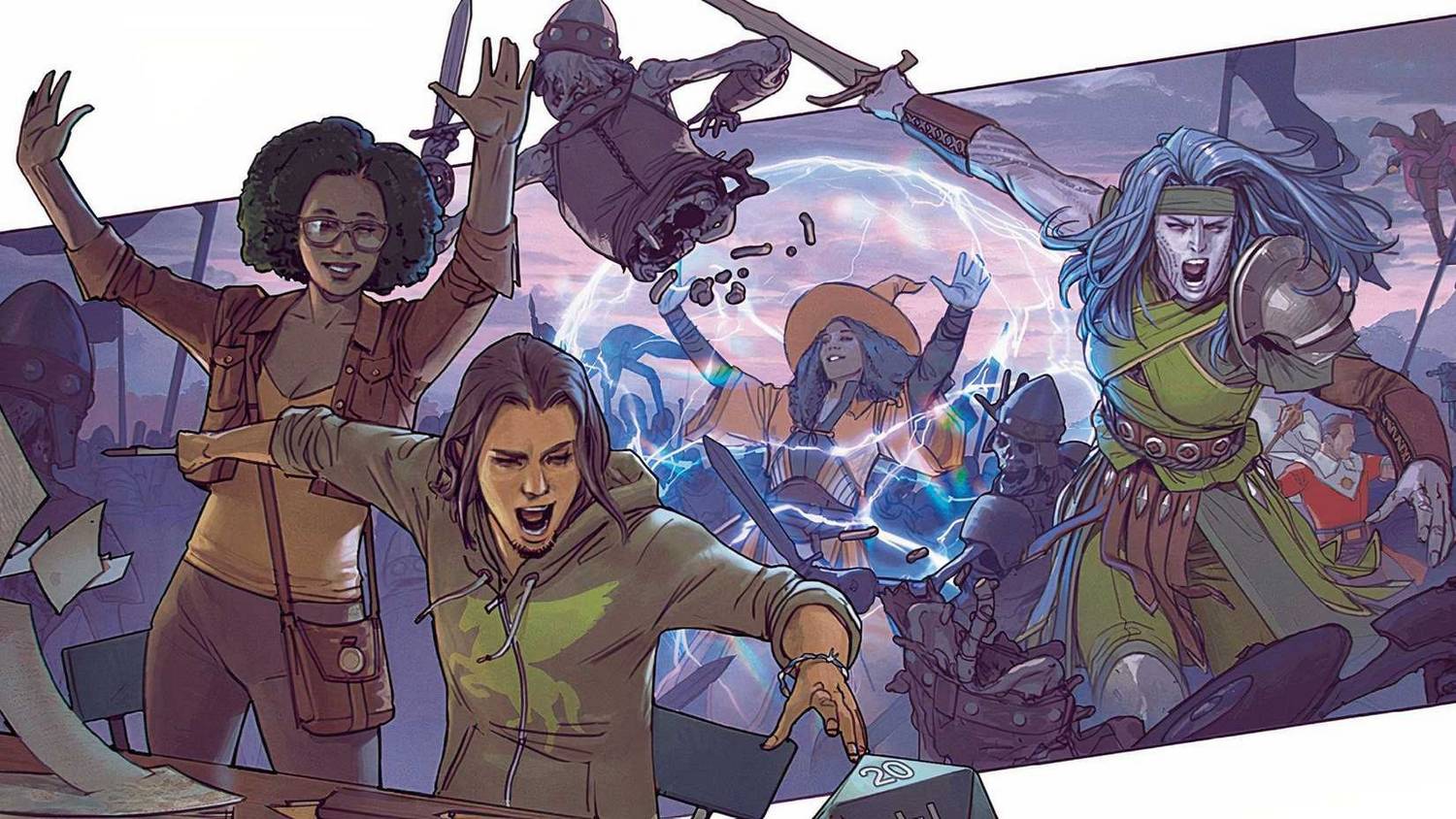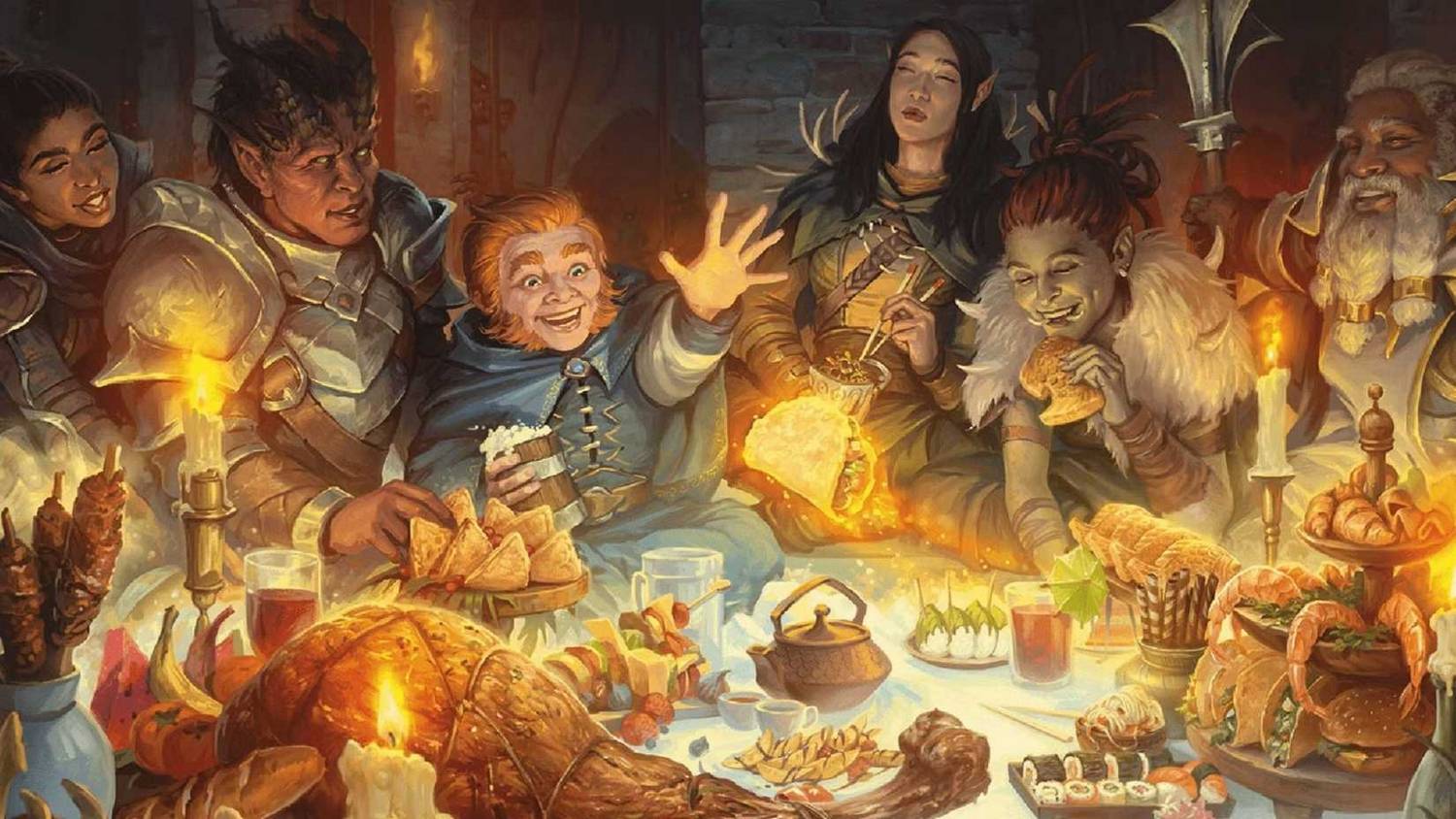Unforeseen Victory: How Dungeons & Dragons Player “Mistakes” Become Game-Improving Masterstrokes
Popular Now
 Toca Boca World
Toca Boca World
 Auto X Drift Racing 3
Auto X Drift Racing 3
 Stumble Guys
Stumble Guys
 Grand Theft Auto V
Grand Theft Auto V
 Sonic the Hedgehog™ Classic
Sonic the Hedgehog™ Classic
 The Legend of Zelda
The Legend of Zelda
 Poppy Playtime
Poppy Playtime
 God of War Ragnarök
God of War Ragnarök
 Schedule I
Schedule I
 PUBG Mobile
PUBG Mobile 
In the evolving landscape of Dungeons & Dragons, particularly with the highly anticipated official rule revisions and new core books (like the 2024 Player’s Handbook and 2025 Monster Manual) setting the stage for the next era of play, one constant remains: player unpredictability. Often, what begins as a mechanical oversight or a narrative detour—a perceived player mistake—unfurls into the most memorable, game-improving, and genuinely valuable moments at the tabletop. For Dungeon Masters (DMs) and players alike, recognizing these “flubs” not as failures, but as unexpected opportunities, is the true secret to high-value TTRPG experiences.
The Creative Power of Forgetting the Rules
The D&D 5e system, and its updated 2024 iteration, provides a robust framework, but adherence to the letter of the law can sometimes stifle the game’s inherent narrative potential. When players forget a specific rule or a character’s mechanical ability, the result is frequently improvisation that yields far more compelling drama than optimal play ever could. This is a critical point for DMs aiming for high player engagement and narrative depth.
- Missing the Plot Hook: The classic “mistake” is completely ignoring the carefully planned plot hook. Instead of a hindrance, this is a DM’s golden ticket. The players’ chosen tangent becomes the new main quest. The missed plot hook doesn’t vanish—it festers in the background. Now, the main villain’s plan advances unopposed, creating a natural, world-driven consequence that makes the fantasy world feel dynamic and real. This provides superior long-term investment compared to simply redirecting the party.
- The Unprepared Spellcaster’s Brilliance: A Wizard or Cleric forgets to prepare the perfect utility or combat spell, only realizing their error when the crisis hits. They are forced to utilize obscure, forgotten, or intentionally “bad” spells in new, brilliant ways. This scarcity breeds invention. A player using Minor Illusion to distract a massive Ogre, or a Warding Bond sacrifice to save the party’s main damage dealer, are stories told for years. The mechanical “mistake” is a narrative win that elevates strategic gameplay.
- Forgetting Combat Buffs and Abilities: In the heat of battle, players often forget to use a special racial ability, a once-per-long-rest feature, or a specific combat buff. This initially makes a balanced encounter feel deadly. When the player finally remembers and utilizes their full power, often near defeat, it’s not just a mechanical action—it’s a dramatic ‘second wind.’ This unexpected burst of power transforms a challenging encounter into a grand, heroic moment, maximizing the narrative payoff of the player’s core class features.
Flawed Builds: The Engine of Character Development
The current meta encourages optimized character builds for maximum DPS (Damage Per Second) and effectiveness. Yet, players who create sub-optimal or “bad” builds—perhaps a character with a low primary stat or mismatched feats—secretly improve the game by forcing roleplay and narrative justification.
A low Charisma Paladin who still attempts to inspire the troops, or a Wizard with a poor Constitution score who must constantly rely on cunning and positioning, creates internal conflict and reliance on the party. These characters have built-in flaws that the DM can weave into the campaign, leading to profound role-playing opportunities and emotional character arcs. The imperfection becomes their defining feature, making the eventual triumph against a high-CR encounter all the more satisfying. This approach provides excellent cost-per-click (CPC) content for gaming publications, as “worst build redeemed” stories are highly searchable.
 Misinterpreting Lore: The Genesis of New Canon
Misinterpreting Lore: The Genesis of New Canon
A player hears a rumor, misremembers an NPC’s name, or fundamentally misunderstands the backstory of a local cult. A novice DM might correct them, but a veteran knows this is a gift. The player’s misinterpretation often becomes a more interesting, organic branch of the lore. Instead of correcting, the DM should “yes, and” the mistake.
Example: The player believes the “Cult of the Crimson Eye” is led by an ancient Vampire, when the true lore says it’s just a crazy Lich. The DM leans into the player’s belief. Now, the players are hunting a Vampire, and the Lich is secretly pulling strings, creating a two-layered, more complex villain structure. This fosters a sense of collaborative world-building and makes the players feel like co-authors of the campaign, which is the core of the D&D experience.
The Economy of Gold and Magic Item Mistakes
New DMs often err on the side of generosity, providing too much gold or too many potent Magic Items early on. While this can trivialize some encounters, it also forces DMs to get vastly more creative with their challenges. If the party has a Flying Carpet and a Bag of Holding at level 3, a standard dungeon crawl won’t cut it. The DM must introduce complex political intrigue, environmental hazards (like anti-magic zones), or villains who exploit the party’s new-found weaknesses. The mistake of over-gearing the party results in a campaign with higher stakes, more elaborate dungeon design, and a shift in focus from simple combat to high-level strategic planning—an unexpected boon for advanced players seeking a greater challenge rating.
Conclusion: Embrace the Chaos
The recent design philosophy behind the 2024/2025 core rules update emphasizes clarity and consistency, which is excellent for new player onboarding. However, the truly exceptional moments in Dungeons & Dragons remain those born from chaotic, unexpected player actions that skirt the edge of the rules or the planned narrative. DMs who view player “mistakes”—from the simple rule flub to the complete plot derailment—as valuable narrative and mechanical resources will find their campaigns are not broken, but secretly improved, leading to higher player retention and genuinely legendary game nights. The best stories are rarely the planned ones; they are the ones we all build together when we let the dice, and the players, lead the way. This dynamic, unpredictable environment is why D&D remains the undisputed leader in tabletop role-playing games.








 Misinterpreting Lore: The Genesis of New Canon
Misinterpreting Lore: The Genesis of New Canon